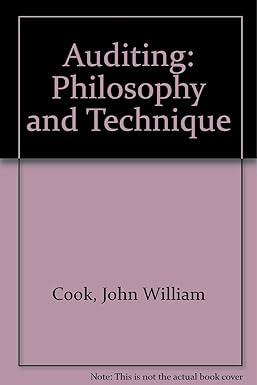Question
1. Jackson Corp. has an authorized capital stock of 1,000 shares with a par value of $100 per share, of which 900 shares, all fully
1. Jackson Corp. has an authorized capital stock of 1,000 shares with a par value of $100 per share, of which 900 shares, all fully paid, were outstanding. Having an ample surplus, Jackson Corp. purchased from its shareholders 100 shares at par. Subsequently, Jackson, needing additional working capital, issued the 200 shares in question to Murphy at $80 per share. Two years later, Jackson Corp. was forced into bankruptcy. How much, if any, may the trustee in bankruptcy recover from Murphy? Please explain.
2. Alex Bender is the owner of noncumulative 8 percent preferred stock in the Cyclone Corporation, which had no earnings or profits in 2010. In 2011, the corporation had large profits and a surplus from which it might properly have declared dividends. However, the directors refused to do so, using the surplus instead to purchase goods necessary for the corporation's expanding business. The corporation earned a small profit in 2012. The directors at the end of 2012 declared a 10 percent dividend on the common stock and an 8 percent dividend on the preferred stock without paying preferred dividends for 2011.
a. Is Bender entitled to dividends for 2010? For 2011?
b. Is Bender entitled to a dividend of 10 percent rather than 8 percent in 2012?
Please explain.
3. Sayre learned that Adams, Boone, and Chase were planning to form a corporation for the purpose of manufacturing and marketing a line of novelties to wholesale outlets. Sayre had patented a self-locking gas tank cap but lacked the financial backing to market it profitably. He negotiated with Adams, Boone, and Chase, who agreed to purchase the patent rights for $5,000 in cash and 200 shares of $100 par value preferred stock in a corporation to be formed.
The corporation was formed and Sayre's stock issued to him, but the corporation has refused to make the cash payment. It has also refused to declare dividends, although the business has been very profitable because of Sayre's patent and has a substantial earned surplus with a large cash balance on hand. It is selling the remainder of the originally authorized issue of preferred shares, ignoring Sayre's demand to purchase a proportionate number of these shares. What are Sayre's rights, if any? Please explain.
Step by Step Solution
There are 3 Steps involved in it
Step: 1

Get Instant Access to Expert-Tailored Solutions
See step-by-step solutions with expert insights and AI powered tools for academic success
Step: 2

Step: 3

Ace Your Homework with AI
Get the answers you need in no time with our AI-driven, step-by-step assistance
Get Started


